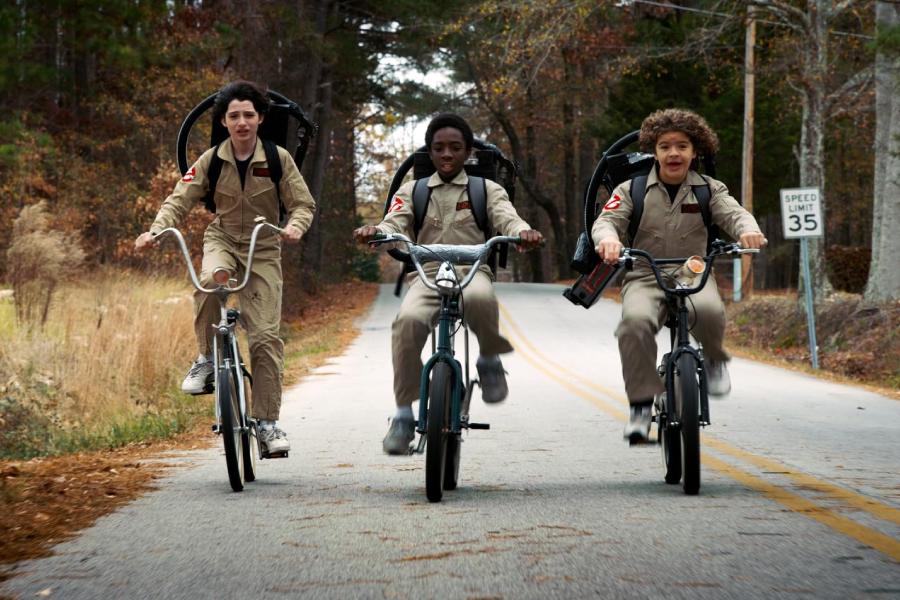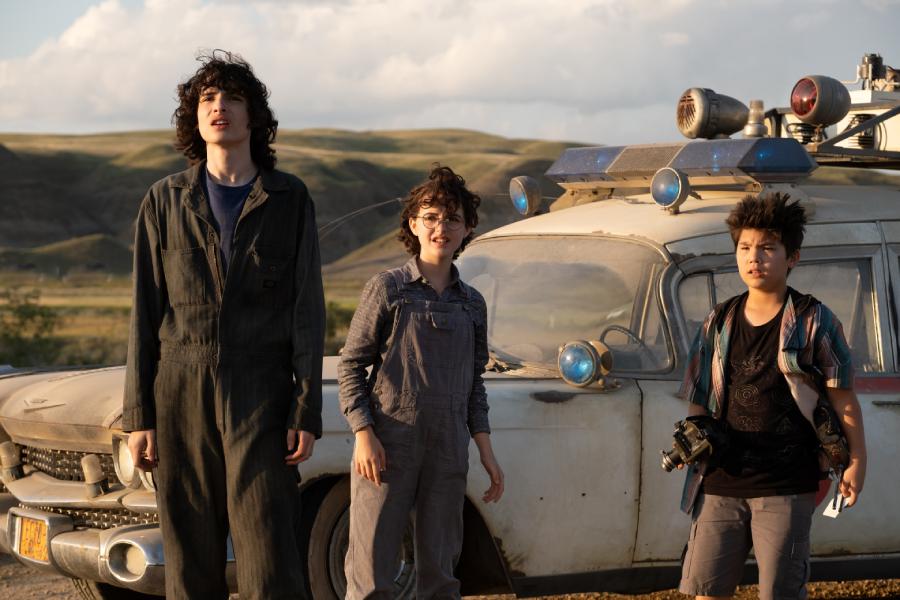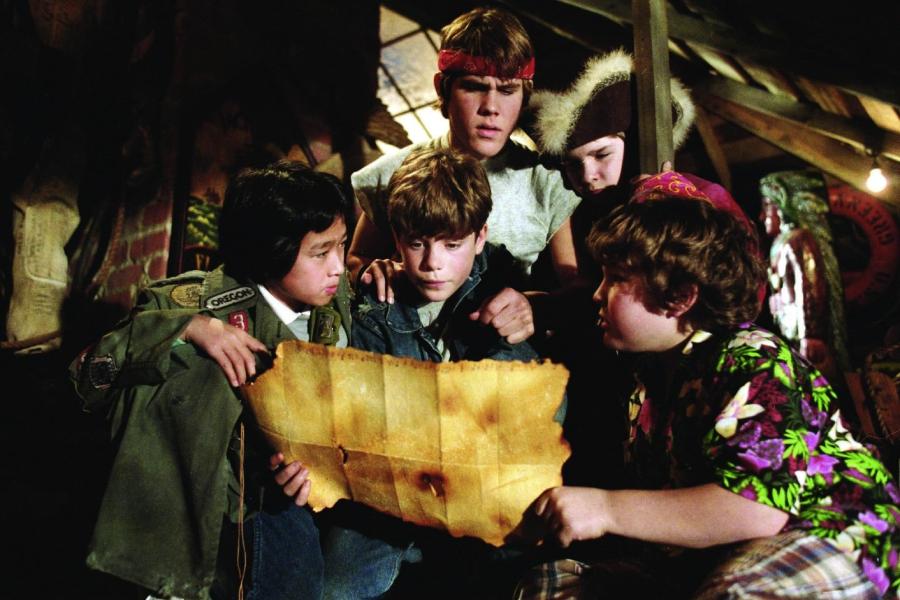In the summer of 1985, a ragtag group of kids set out on an unforgettable adventure underneath the sleepy coastal town of Astoria, Oregon, in search of pirate gold. Armed with little more than a treasure map, a faulty sense of direction and an unbreakable bond, the Goonies captured hearts around the world — and with that, the film secured its own piece of cinematic treasure. The Goonies (1985) wasn’t just a movie; it was a mood, a rite of passage. It had pirate ships, secret maps and Cyndi Lauper on the soundtrack. What more could a kid ask for? Forty years later, Richard Donner’s cult classic remains a pop culture touchstone, its echoes heard in some of today’s most beloved films and shows.
A Gen-X Time Capsule… And More
Written by Chris Columbus and produced by Steven Spielberg, The Goonies was part of an '80s boom in kids-on-bikes storytelling — joined by E.T., Stand by Me, and Explorers — where young protagonists were treated not as sidekicks or accessories, but as emotional centres of sprawling, high-stakes adventures.
In The Goonies, a bunch of kids from the “wrong side of the tracks” set out to drive away evil real estate developers. These weren’t superheroes or prodigies; they were working-class misfits with inhalers, braces and bandanas, fighting not just for treasure but to save their homes and families. It wasn’t just a quest. It was survival. Naturally, this involved following an ancient treasure map into underground caves guarded by a skeleton crew’s worth of traps and some genuinely questionable plumbing. They were chased by the Fratellis — a family of criminals whose IQ ranged from dim to cartoonish — and befriended by Sloth, a misunderstood strongman with a heart of gold and a face straight out of a nightmare.
This blend of fantasy and grounded emotion — along with a dose of unfiltered kid chaos — helped the film transcend its era. The idea that friendship and belief could win the day resonated then, and still does.
Why It’s Still a Cultural Touchstone
Four decades on, the DNA of The Goonies can be traced through countless films and television series. From Stranger Things to Super 8, IT to Paper Girls, Locke & Key to Ghostbusters: Afterlife — every story about scrappy kids battling something bigger than themselves owes The Goonies a big, greasy slice of credit.
Take Stranger Things. Kids on bikes? Check. Government conspiracy? Check. An earnest leader, a sarcastic sidekick, and an emotional core wrapped in supernatural chaos? Triple check. Stranger Things creators and showrunners, The Duffer Brothers, practically built the fictional town of Hawkins on Goonie bones. Even Sean Astin, little Mikey in The Goonies, was cast in Stranger Things Season 2 as Bob, a deliberate nod to the past.

A still from ‘Stranger Things’ IMDb
Then there’s Super 8, J.J. Abrams’ love letter to his Spielberg-soaked childhood. It swaps pirate treasure for a train crash and a misunderstood alien, but the DNA is the same: kids outsmarting adults, friendship as survival, and big emotions lit by a flashlight in the dark.
IT (the reboot, not the 1990 miniseries with Tim Curry’s demonic charisma) doubles down on the formula, only with more horror and childhood trauma. The Losers’ Club could be the Goonies’ emo cousins — still loyal, still brave, just battling a shape-shifting clown instead of booby traps.
Paper Girls takes it further into sci-fi. Four girls in 1988 accidentally fall into a time war, and while it’s moodier and more cerebral than The Goonies, it shares that same heartbeat: kids who never meant to be heroes, figuring things out before the adults even notice something’s wrong.
And then there’s everything else. Locke & Key, where magical heirlooms replace treasure maps. The Umbrella Academy, where found family becomes both weapon and wound. Ghostbusters: Afterlife, which is so drenched in Goonie-esque nostalgia that it might as well come with a Truffle Shuffle.

A still from ‘Ghostbusters: Afterlife’ IMDb
Even animation hasn’t escaped. Gravity Falls is basically The Goonies with better fonts and more conspiracy theories.
But perhaps more enduring than the treasure maps or pirate ships is the idea that outcasts matter, that courage isn’t about size or status, and that every kid has a role to play — even if they’re not the loudest or strongest. Because the formula works. It always has. Let kids be loud, messy and brave. Make adults clueless. Add danger, loyalty and just enough weirdness to keep things magical. Most of all, let them win.
Let’s not forget the cast members who made a place for themselves in Hollywood. Whether it is Sean Astin, who went from inhaler-wielding leader to Rudy to Samwise Gamgee in the Lord of the Rings Trilogy and a permanent invite to every Comic-Con panel ever. Or Josh Brolin, who outgrew the gym shorts and went full Thanos.
Let’s also not forget the most Goonies-coded thing to happen in the 2020s: Ke Huy Quan (Data!) winning an Oscar for Everything Everywhere All at Once. It’s like the universe finally gave him his One-Eyed Willy moment.
Some of It Hasn’t Aged Like Fine Wine
Here’s the thing. The Goonies is fun. It’s chaotic. It’s iconic. But it’s also not subtle about its fat jokes (poor Chunk), relies a little too heavily on “funny accents” (Data deserved better), and uses disability as a prop for both comedy and redemption (Sloth, we love you, but wow).
While the film champions outcasts, it sometimes does so while simultaneously dunking on them. The intent was clearly warm-hearted. The execution? Let’s just say, if it came out today, X would eat it alive before the Fratellis even got their first close-up.
Forty Years On: The Map Still Glows
Despite its flaws, The Goonies remains a chaotic masterpiece. Yes, it’s a product of its time. Yes, some parts are best viewed through squinty, nostalgic eyes. But it’s also the blueprint for every group adventure story that came after. And let’s be honest: the moment the score swells, the ship sails, and Mikey says, “Goonies never say die” you feel something.
As Hollywood continues to reboot, remake and reimagine, there’s been long-running speculation about a Goonies sequel. Richard Donner was reportedly developing one before his death in 2021. Spielberg has hinted at “something” that might carry the torch. But perhaps the truest continuation lies not in a direct sequel but in the spirit that’s already been passed on.
Whether it’s a group of tweens fighting demogorgons or a bunch of friends making a short film in their backyard, the Goonies spirit lives on in many stories. In that sense, The Goonies has already found its eternal treasure.
“This is our time. Our time down here.”










